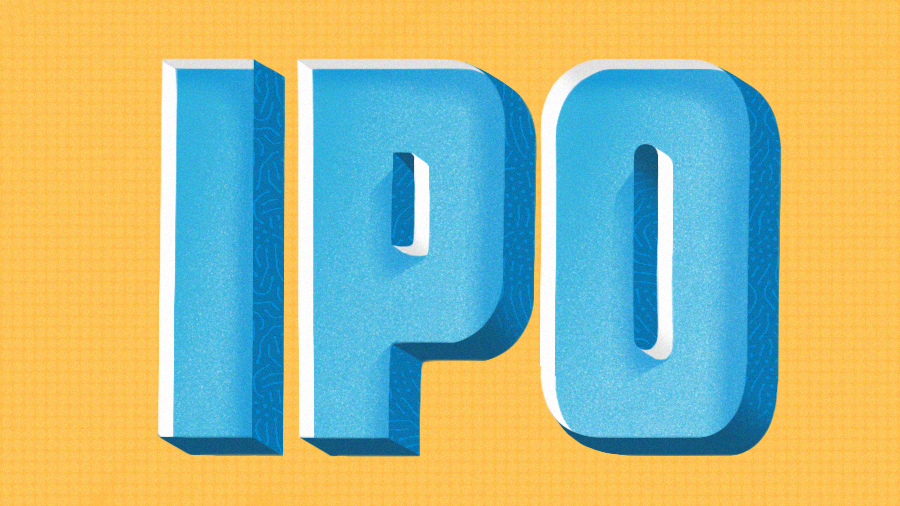The COVID-19 pandemic coupled with a fractious U.S. presidential election made 2020 a year of uncertainty—an environment equity markets generally don’t like.
But now with the presidential election decided in favor of Democrat Joe Biden, one big question that’s hung in the air all year has been answered. Positive news on Monday from Pfizer about its under-development COVID-19 vaccine further buoyed investor hopes for an economic recovery next year.
Subscribe to the Crunchbase Daily
Renewed certainty about the U.S.’ political future and the prospect of getting a handle on the coronavirus pandemic in 2021 means we’ll likely see a robust lineup of venture-backed companies going public in the final two months of this year and into early next, according to analysts and venture capitalists who spoke with Crunchbase News on Monday.
“Airbnb is going to be the capstone of 2020,” said Matt Kennedy, a senior strategist at IPO research firm Renaissance Capital. “We do expect DoorDash also to file, probably Instacart as well. You never really know unless the company leaks it that they’re going to file, but we do have a list of potential companies that would, and with the positive vaccine (news), everything’s on the table.”
Among the other companies that could go public before year-end, according to Kennedy: Poshmark and Wish (which have both already filed confidential registration statements to go public), along with Qualtrics, Payoneer and Robinhood. Chinese companies could also tap into the U.S. equity markets, Kennedy said.
The IPO market has been busy this year, despite the COVID-19 pandemic. Not counting biotech companies, more than 19-venture backed technology companies have gone public already this year, mostly in the second half of 2020.
Charlie Plauche, a partner at S3 Ventures, said he thinks the first quarter of 2021 could set a record for tech IPOs, if markets hold.
“If your company is ready, of the size to go public and you have the systems in place and all that…I think many boards will look at that as a very attractive financing option,” he said.
Mike Smerklo, co-founder and managing director of Next Coast Ventures, also pointed to early 2021 likely being a robust market for IPOs. And November and December have historically been a “no fly zone” for IPOs, but it could be different this year because of the positive vaccine news, he said.
Smerklo believes early 2021 will see a lot of activity because of the low interest rate environment, businesses benefiting from digital transformation and a pipeline of strong venture-backed businesses that have been built over the last decade.
“They’re mature, they’re sizable, they’ve got scale, they’ve raised a lot of capital over the past decade and they’re ready to make that move,” Smerklo said.
While the first week of November was slower for IPOs than usual for a presidential election year, Kennedy expects there to be a small uptick in mid-November, then a quieter period around Thanksgiving, followed by more activity in the three weeks following Thanksgiving.
“Normally there is a slight decrease in activity around the election. This year it’s definitely been more pronounced,” he said. “This year we’ve had an historically record-breaking October, September and August.”
Earlier this year, many companies postponed their spring IPOs as the pandemic ushered in sudden economic uncertainty. Then, a spate of companies rushed to go public before the election and to take advantage of a suddenly hot market, according to Kennedy.
Among the high-profile companies that have gone public already this year are Palantir Technologies, Asana, Snowflake and Lemonade.
Kennedy expects there to be an “ample number” of companies going public in December. It’s not unusual to see large companies like Airbnb go public at the end of the year, he said, and this year we’ll likely have “more than we would usually see in December based on how well the index has been performing this year.”
“Volatility is low and valuations are high,” he said, “so if you can go public if an IPO is in your plans, then there’s no point in waiting for a better time.”
Another reason Kennedy pointed to as contributing to a likely robust end of the year for IPOs: news that early data shows that Pfizer’s in-development COVID-19 vaccine is more than 90 percent effective. The Pfizer news opens up the possibilities of what kinds of companies can go public, according to Kennedy.
Software companies and companies that support remote work, virtual gatherings and the like have seen more demand this year, making market conditions favorable for their IPOs. But companies in sectors like travel and hospitality have been hit hard by the pandemic, so a vaccine could improve their chances of having a successful IPO.
That sentiment was echoed by Morgan Flager, managing partner at Silverton Partners.
“I definitely think (the vaccine news) opens up the IPO pipelines to a broader set of companies and I think it lessens the chance that people will pull their IPO and push back the timeline,” Flager said, adding that the news added some stability to the financial markets.
Both private and public funding markets have the “potential to explode” next year, according to Smerklo of Next Coast Ventures, given what an uncertain year 2020 has been.
“I think there’s a lot of capital on the market, on the sidelines both public and private,” he said. “And I think between COVID and the election, there’s been a lot of capital that has been cautious.”
Companies expected to go public in late 2020 or early 2021:
- Airbnb (expected to file S-1 this week)
- Instacart
- DoorDash
- Wish
- Poshmark
- Qualtrics
- Payoneer (possible)
- Robinhood (possible)
Venture-backed tech (and tech-adjacent) companies that have gone public in 2020:
- One Medical
- Casper
- Kingsoft Cloud
- ZoomInfo
- Vroom
- Agora
- Lemonade
- nCino
- Jamf
- BigCommerce
- Duck Creek Technologies
- Snowflake
- JFrog
- Sumo Logic
- Amwell Health
- Unity
- Palantir
- Asana
- Root Insurance
Illustration: Dom Guzman

Stay up to date with recent funding rounds, acquisitions, and more with the Crunchbase Daily.


![Illustration of toast with IPO toasted in. [Dom Guzman]](https://news.crunchbase.com/wp-content/uploads/Forecast-IPO-470x352.jpg)
![Illustration of a magnet attracting various products. [Dom Guzman]](https://news.crunchbase.com/wp-content/uploads/mergers_and_acquisitions-470x352.jpg)


![Illustration of toast with $ toasted in. [Dom Guzman]](https://news.crunchbase.com/wp-content/uploads/Forecast-dollar-sign-300x168.jpg)


67.1K Followers